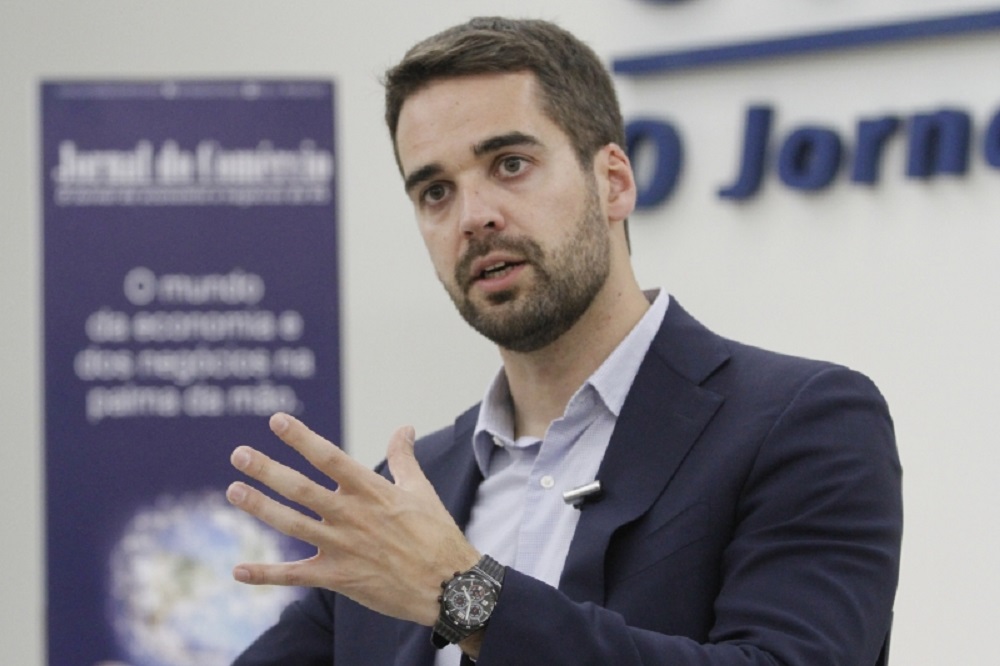RIO DE JANEIRO, BRAZIL – According to Eduardo Leite, the governor of Rio Grande do Sul, the proposal, submitted yesterday, October 23rd, allows the state to join the Fiscal Recovery Regime (RRF) without privatizing Banrisul.
Leite delivered the plan to Economy Minister Paulo Guedes. The proposal will be analyzed by the National Treasury. Eduardo Leite said that Rio Grande do Sul may join the RRF later this year should the federal economic team approve the adjustment plan.

Of the R$63 billion (US$15.75 billion) in adjustments, R$33 billion refers to spending cuts and increased revenues (such as higher taxes and the sale of state-owned companies). The remaining R$30 billion will come from the state’s savings when it ceases to pay its debt to the federal government during the RRF grace period.
“A formal procedure for joining the Tax Recovery Regime is not yet open. We have already managed to approve the sale of three state-owned companies in the Legislative Assembly. The next step is to approve the projects with an impact on the state’s revenues and expenses. We have submitted these actions to the Treasury, which should determine the consistency of our plan in the coming weeks,” said the governor after the meeting with Guedes.
Intended for states with high indebtedness levels, the RRF allows the states to suspend payment of portions of their debts to the federal government for three years, and to obtain loans from private banks. In return, local governments are required to submit an adjustment plan that includes spending cuts, tax increases, and privatizations. The state of Rio de Janeiro joined the RRF in 2017.
Currently, only Minas Gerais and Rio Grande do Sul have debts high enough to apply to join the RRF. The aid package for states with medium and low indebtedness, called the Plan to Promote Fiscal Balance (PEF), has been in the Chamber of Deputies since June.
The PEF would benefit states in financial difficulties because of their spending on personnel but without high debts to the federal government, such as Goiás, Mato Grosso, Roraima and Rio Grande do Norte.
In recent years, the privatization of Banrisul represented the main obstacle preventing Rio Grande do Sul from joining the RRF. This is because the National Treasury demanded the sale of the bank so that the state could join the special regime.
Leite explained that the government decided to draw up a tough adjustment plan to dispense with the privatization of Banrisul. “The sale of the bank would lead to great political stress in exchange for a one-off result that would not solve the state’s account situation,” he said.
Leite stressed that the plan submitted yesterday focuses on rebalancing the payroll of civil servants, which represents most of the state’s current deficit, and opens the way for Rio Grande do Sul to pay its debts and return to the limits of the Fiscal Responsibility Law (LRF).
Source: Agência Brasil

